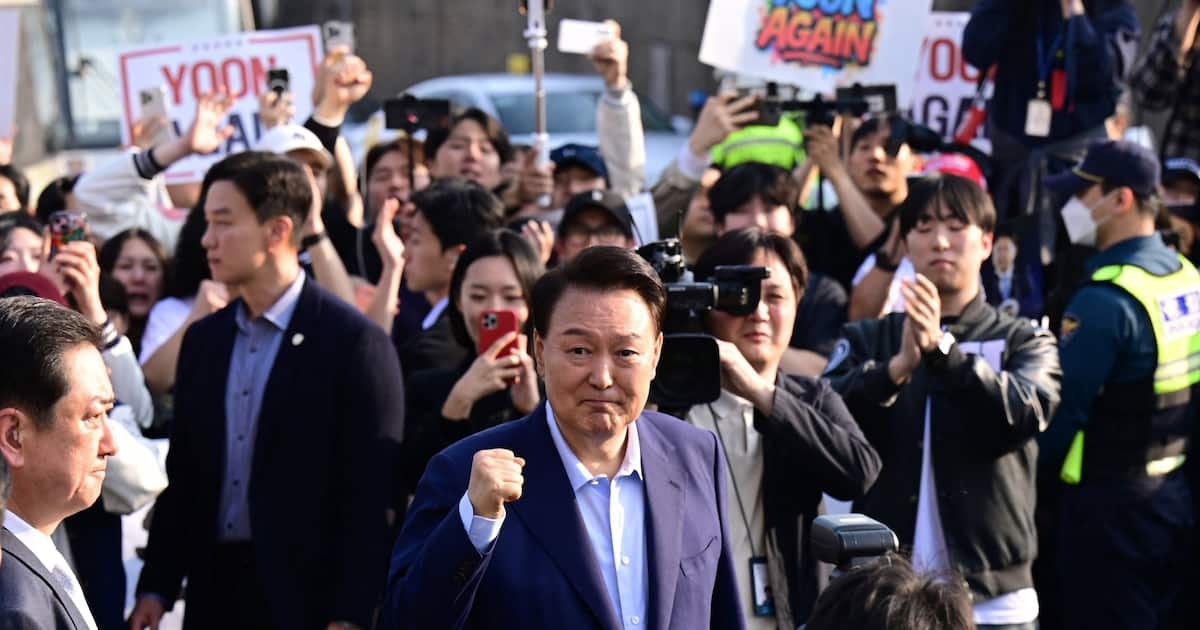Reflecting on Yoon: Korea's Conservative Identity and its Global Impact
South Korea's political landscape experienced a significant shift with the election of President Yoon Suk-yeol, marking a return to conservative governance after a period of progressive leadership. Yoon's presidency has sparked considerable debate, both domestically and internationally, prompting a deeper examination of Korea's conservative identity and its implications for the nation's future and its role on the global stage. This article delves into the key aspects of Yoon's presidency, analyzing its impact on South Korea's domestic and foreign policies.
Yoon's Conservative Agenda: A Return to Traditional Values?
Yoon's campaign platform resonated with voters seeking a return to more traditional values and a stronger emphasis on national security. His administration has prioritized several key areas:
Economic Policies:
- Focus on Business-Friendly Regulations: Yoon's administration has implemented policies aimed at streamlining regulations and boosting private sector investment, hoping to stimulate economic growth. This approach contrasts with the previous government's focus on income equality and social welfare programs. Critics argue these policies exacerbate existing inequalities.
- Strengthening Economic Alliances: A key element of Yoon's economic strategy involves strengthening alliances with key trading partners, particularly the United States, to secure access to global markets and bolster South Korea's position in the global economy. This includes increased cooperation in areas like technology and supply chain resilience.
Foreign Policy:
- Strengthening the US Alliance: Yoon's administration has significantly strengthened the US-South Korea alliance, emphasizing mutual defense and cooperation on regional security issues. This includes enhanced joint military exercises and closer collaboration on addressing the North Korean nuclear threat.
- Navigating Relations with China: Balancing the close relationship with the US with the importance of trade relations with China presents a significant challenge for Yoon's foreign policy. Finding a delicate equilibrium is crucial for South Korea's economic and geopolitical stability.
- Increased Global Engagement: Yoon's government has actively sought to increase South Korea's global engagement, participating in international forums and pursuing multilateral collaborations. This reflects a desire to enhance South Korea's international standing and influence.
Domestic Policies:
- Emphasis on National Security: The North Korean nuclear threat remains a significant concern, and Yoon's administration has taken a firm stance against Pyongyang's actions. This includes increased military preparedness and closer cooperation with allies.
- Social Conservatism: Yoon's stance on social issues has drawn criticism from progressive groups. Certain policies reflect a more conservative approach to matters like gender equality and LGBTQ+ rights, sparking public debate.
The Impact of Yoon's Presidency on South Korea's Identity
Yoon's presidency has inevitably sparked reflection on the very nature of South Korea's national identity. The rise of conservatism under his leadership highlights a complex interplay of factors, including:
- Economic anxieties: Concerns about economic inequality and the future of South Korea's economic competitiveness have contributed to the appeal of conservative policies promising economic growth and stability.
- National security concerns: The persistent threat from North Korea continues to shape South Korean politics, leading to a greater emphasis on national security and a stronger alliance with the US.
- Generational shifts: Shifting generational values and political preferences also play a crucial role, as younger generations exhibit differing views on social and economic issues compared to older generations.
Looking Ahead: Challenges and Opportunities
Yoon's presidency presents both challenges and opportunities for South Korea. Navigating the complexities of the global landscape, balancing economic growth with social equity, and addressing the North Korean nuclear threat will require deft diplomacy and effective governance.
Further Reading: (link to relevant academic articles or news sources on South Korean politics)
Keywords: Yoon Suk-yeol, South Korea, conservative, politics, foreign policy, domestic policy, US-South Korea alliance, North Korea, economic policy, national security, Korean identity, global impact
This article provides a balanced overview of the subject, aiming to increase reader understanding. It incorporates several SEO best practices including keyword optimization, internal/external linking (where appropriate), and a clear, concise structure for enhanced readability and search engine visibility. Remember to replace the placeholder for "Further Reading" with actual links to reputable sources.
